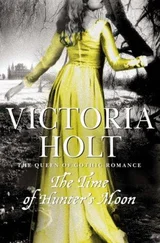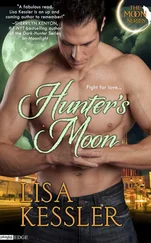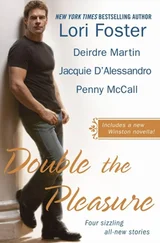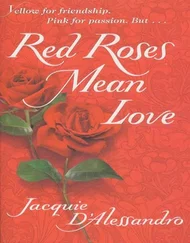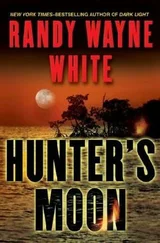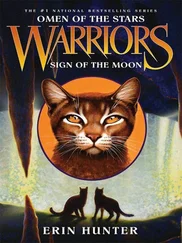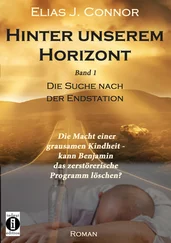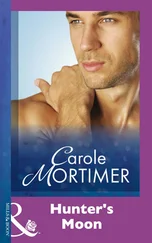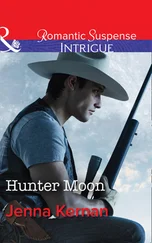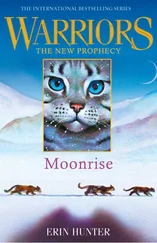ALEXANDRA CONNOR
Published by HarperCollins Publishers 1 London Bridge Street London SE1 9GF
www.harpercollins.co.uk
Copyright © Alexandra Connor 2001
Alexandra Connor asserts the moral right to be identified as the author of this work
A catalogue record for this book is available from the British Library
This novel is a work of fiction. The names, characters and incidents portrayed in it are the work of the author’s imagination. Any resemblance to actual persons, living or dead, is entirely coincidental.
All rights reserved under International and Pan-American Copyright Conventions. By payment of the required fees, you have been granted the nonexclusive, nontransferable right to access and read the text of this ebook onscreen. No part of this text may be reproduced, transmitted, downloaded, decompiled, reverse engineered, or stored in or introduced into any information storage and retrieval system, in any form or by any means, whether electronic or mechanical, now known or hereinafter invented, without the express written permission of HarperCollins e-books.
HarperCollins Publishers has made every reasonable effort to ensure that any picture content and written content in this ebook has been included or removed in accordance with the contractual and technological constraints in operation at the time of publication.
Source ISBN: 9780006513520
Ebook Edition © FEBRUARY 2016 ISBN: 9780007400911
Version: 2016–01–13
This book is dedicated to my sister Diana Brierley-Jones. Love you, kiddo – but I still haven’t forgotten the marshmallow …
Hunter’s moon – the moon following the harvest moon.
Brewer’s Dictionary of Phrase and Fable
Cover
Title Page
Copyright
Dedication
Epigraph
Prologue
Part One
Chapter One
Chapter Two
Chapter Three
Chapter Four
Chapter Five
Chapter Six
Chapter Seven
Chapter Eight
Chapter Nine
Chapter Ten
Chapter Eleven
Chapter Twelve
Chapter Thirteen
Chapter Fourteen
Chapter Fifteen
Chapter Sixteen
Chapter Seventeen
Chapter Eighteen
Chapter Nineteen
Chapter Twenty
Chapter Twenty-One
Chapter Twenty-Two
Chapter Twenty-Three
Chapter Twenty-Four
Chapter Twenty-Five
Chapter Twenty-Six
Part Two
Chapter Twenty-Seven
Chapter Twenty-Eight
Chapter Twenty-Nine
Chapter Thirty
Chapter Thirty-One
Chapter Thirty-Two
Chapter Thirty-Three
Chapter Thirty-Four
Chapter Thirty-Five
Chapter Thirty-Six
Chapter Thirty-Seven
Part Three
Chapter Thirty-Eight
Chapter Thirty-Nine
Chapter Forty
Chapter Forty-One
Chapter Forty-Two
Chapter Forty-Three
Chapter Forty-Four
Chapter Forty-Five
Chapter Forty-Six
Chapter Forty-Seven
Chapter Forty-Eight
Chapter Forty-Nine
Part Four
Chapter Fifty
Chapter Fifty-One
Chapter Fifty-Two
Chapter Fifty-Three
Chapter Fifty-Four
Chapter Fifty-Five
Chapter Fifty-Six
Chapter Fifty-Seven
Chapter Fifty-Eight
Chapter Fifty-Nine
Chapter Sixty
Chapter Sixty-One
Chapter Sixty-Two
Chapter Sixty-Three
Chapter Sixty-Four
Acknowledgements
About the Author
Also by the Author
About the Publisher
It took a moment for him to realise what he had done. A second spent staring at the dead woman, then a quick glance upwards to the bedrooms. Outside the sky was coming into moonlight, a horse stamping its feet in the driveway and whinnying with impatience. He turned down the gaslights. Then he saw a figure silhouetted in the doorway.
Panic made him fling open the window next to him and climb out, then run down the lawn towards the drive without daring to look back. Breathing heavily, he headed towards the road leading down to Oldham. A couple of men passed him and nodded automatically. He was known, a man of importance. Their superior. They would remember seeing him … He stopped, watched them pass. Then as soon as he heard their footsteps die away he started running again.
The moon – a hunter’s moon – had now risen and he thought fleetingly how it would sneak under the blinds back at the house and fall across the carpet. It would glow, melancholic, on every surface, wiping its yellow feet on everything it touched.
He stopped; looked round. He would get away. But where? He had nowhere to go. This was his town, his home. This was where his family was … Sweating, he leaned against the wall of an alleyway, limp with terror. Calm yourself, he thought, be calm. It was a mistake, a mistake . You can get over this, you can live with this. Unexpectedly, an uncanny peace came over him. He could do it, he would blot it out, put it up on a shelf at the back of his memory and leave it there.
He began to walk again. Yes, he could live with it. All he had to do was to close down his conscience, find a way to stop the sickness welling up. He had thought fleetingly of giving himself up – but how could he explain what he had done? How he had lost control and hit out – and then kept hitting.
They would go to the house and see that it had been no accident, no random blow, but a concentrated violence of blows. A determined intent to kill.
At first, they wouldn’t believe it of him. Not him.
You have to forget it , he willed himself. But the calm had gone and in its place was the knowledge that he could never forget it. Oh Jesus, he breathed, oh Jesus …
He could never go home. Never go back. He would run instead, and hide and hope they never caught him. But at night, every night, he knew he would replay what he had done. Over and over.
He kept running, but even now he could hear and see her on the flagstones and cobbles. Every lamp carried her eyes in its light; every bush and wall he passed, her figure.
And overhead the wide yellow hunter’s moon tracked him and illuminated every step of the useless, hopeless way.
Part One
Barely thirteen yards from the railway viaduct stood the sour corner building of the children’s home. It had been built in the 1830s to house the abandoned or orphaned offspring of the industrial towns Oldham and Salford. The smaller, surrounding semirural villages like Dobcross, Diggle, Uppermill and Failsworth were poor, populated with mill and pit workers, but an illegitimate child there was usually assimilated into the extended family. Often, daughters caught out had their bastard offspring raised as their sibling. As for the incest, that was a brewing undercurrent in the worst slums, but those unlucky offspring were also soaked into the family, unsure of their parentage and belligerent with the outside world.
But in the larger towns, like Oldham and Salford, there was not the same tightly meshed community. It was not uncommon for an infant to be abandoned on the stone steps of the Netherlands Orphanage, without even a name to call its own. These were the forgotten children, often sickly, frequently little more than a day or so old.
It was no real secret where these children came from: most were the casualties of streets like Grimshaw Street, or the notorious area called The Bent. From the 1850s most of Oldham’s Irish population lived here, a small webbing of streets occupied by low pubs, brothels and boarding houses where the hopeless ended up. If you found your way into The Bent, the chances were you wouldn’t get out again.
Читать дальше


